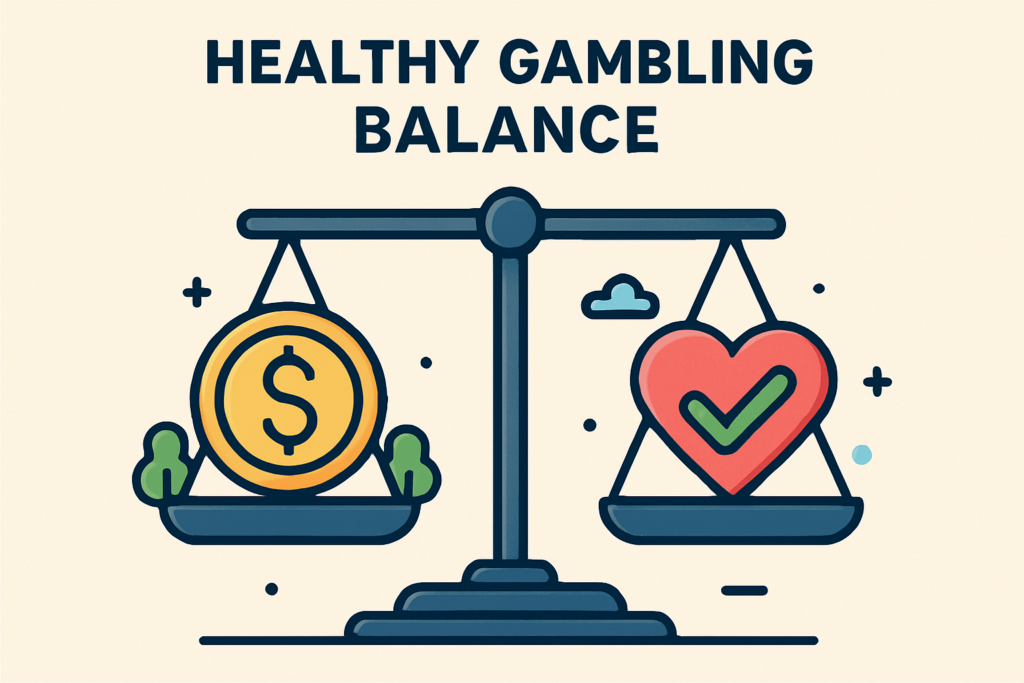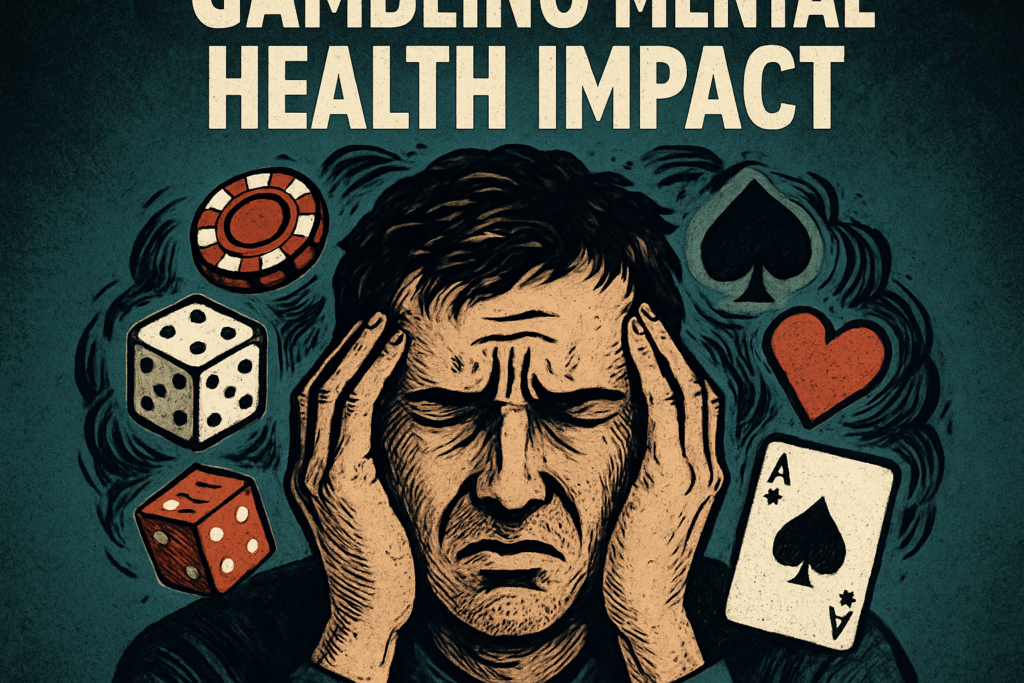Why a Responsible Gambling Plan Matters
- Quick take: Gambling can be a rush, but risk comes with the territory.
- Introduce the need for a responsible gambling plan as a safety net.
- Acknowledge that anyone—beginner or veteran—can benefit from structured play.
Why a Responsible Gambling Plan Matters
Let’s call it straight: gambling is exciting. The chance of hitting it big, the rush, the anticipation—it’s a unique thrill. But every bet comes with risk, and that’s just how the game is built. The difference between fun and trouble? A responsible gambling plan. Think of it as your emergency parachute: you hope you never need it, but you’ll be grateful it’s there if things go sideways.
A responsible gambling plan isn’t about sucking the fun out of your play. It’s about making sure the fun stays safe. Doesn’t matter if this is your first spin or your thousandth hand—anyone can lose track without some guardrails. Structure brings peace of mind, and knowing your own boundaries is the edge most gamblers miss. Bottom line: having a plan doesn’t make you a cautious player. It makes you a smart one.
What Happens After Winning Millions?
Winning a life-changing lottery jackpot is every player’s dream, but few are prepared for what comes next. The sudden influx of wealth can bring excitement, but it also poses a wave of challenges. Many winners find themselves overwhelmed by decisions on how to wisely manage their new fortune, covering everything from taxes to investments.
The Financial Reality of Winning
Winners need to navigate several financial realities quickly:
- Taxes and Legal Issues: Managing taxes is often one of the first priorities, as a significant portion of the winnings usually goes to taxes. Proper legal advice is essential.
- Investment vs. Spending: While some opt to hire financial advisors for a secure future, others may engage in reckless spending, which can deplete their winnings swiftly.
- Future Budgeting: Without a clear and effective financial plan, the dream of endless wealth can soon become a financial nightmare.
A Lifestyle Overhaul
With newfound wealth, lifestyle changes happen almost immediately:
- Luxury Purchases: Expensive homes, sports cars, and lavish vacations become a reality.
- Social Pressure: There is often an emergence of friends and distant relatives hoping for a share, leading to tension and difficult choices.
- Privacy Challenges: Many winners face unwanted attention, leading some to choose a low-profile life to avoid pressure.
Giving Back and Creating a Legacy
Beyond personal benefits, some winners choose to use their fortune to make an impact:
- Charitable Contributions: Many invest in charitable donations or fund community projects.
- Educational Initiatives: Funding scholarships and supporting educational efforts are common choices.
- Business Investments: Winners often invest in businesses, providing jobs, and revitalizing communities.
These actions transition some winners from merely being rich to becoming philanthropists, leaving a lasting positive impact. Conversely, others who fail to manage their riches may quickly find themselves facing financial ruin. How winners handle their newfound riches determines not just their own future, but also the legacy they leave behind.
Step 2: Track Your Play—And Yourself
You can’t manage what you don’t measure. Keeping tabs on your gambling isn’t about sucking the fun out of it—it’s about keeping your head in the game. Jot down how long you’re playing, how much you’re winning or losing, and what you’re feeling while you play. Your memory will lie to you, especially after a hot streak or a tough loss. Pen and paper or spreadsheet—whatever works, just log it.
This type of tracking builds gambler accountability. You’ll start noticing patterns you might otherwise miss: maybe you bet more after a rough day at work or push your limits when you’re chasing previous losses. Spotting these trends early puts you back in the driver’s seat. Responsible play doesn’t happen accidentally; it happens because you’re paying attention, every session.
Step 3: Use Safer Gambling Tools
Don’t just go in blind when casinos have built-in safeguards. Every halfway decent online casino—legit or not—has options to set deposit, loss, and wager limits. You can usually switch these on with a few clicks and save yourself hassle later. Feeling the urge to chase? Let the tech cut you off before things get sideways.
Need a reset or want distance? Look for self-exclusion features—most reputable sites let you lock yourself out for weeks, months, or permanently. And let’s not forget about free external tools and resources that help track your habits, or even block your account altogether.
The best part? You don’t have to figure this out solo. Check out a curated list of safer gambling practices and resources here. Having the tools is one thing—using them is another. So make them part of your game plan.
Step 4: Develop a Structured Gambling Strategy
This isn’t about being a robot. It’s about showing up with a plan instead of flying by the seat of your pants. Before you place your first bet, know what your purpose is: Are you here to chase thrills, or just kill some downtime? Whatever your style, lay out a structured gambling strategy. Decide exactly how much you’re willing to win or lose—no exceptions. Once you hit either one, it’s time to quit. Don’t think of it as cutting yourself off; think of it as having the discipline to stick to your own rules.
Chasing losses is a fast route to losing more than you ever planned. Stay practical. If you’re on a roll, enjoy the ride, but remember, luck runs out, and adrenaline isn’t a strategy. The real win is playing smart and keeping your head clear—leave emotions at the door and trust your system, not your gut.
Step 5: Know When to Walk Away
Here’s the deal: knowing when to quit is a skill, not a defeat. If you catch yourself betting just because you’re bored, chasing yesterday’s losses, or playing on tilt, that’s your signal to step back. Ignoring these warning signs is a shortcut to bigger problems. The smartest players aren’t the ones who never lose—they’re the ones who know when enough is enough.
Schedule “gambling-free” days. Work real breaks into your sessions. Walking away now means you get to play another day. Your money, time, and mental game will thank you.
Step 6: Get Help If You Need It
Sometimes things drift past your control. If gambling stops feeling fun, or if you notice stress and regret creeping in, it’s time to hit pause. Don’t tough it out alone—getting help is a strength move, not a surrender. There’s no shame in talking to someone. Support can look like a conversation with a trusted friend, connecting with a professional, or checking in with official responsible gambling guides. Everyone hits rough patches. The sooner you reach out, the smoother your path back to balance.
Wrap Up: Make Every Bet a Smart Bet
Bottom line: Gambling is entertainment, not a shortcut to easy money. A responsible gambling plan isn’t optional—it’s your lever for staying in control while still enjoying the game. The structure you build and the self-awareness you practice protect your bankroll, your time, and your headspace. That’s a win, no matter what happens at the tables. An award-winning plan isn’t flashy—it’s the one you actually stick with, session after session. Play smart, walk away proud, repeat.

 Molly Depriestano, the founder of Jackpot Rush Empire, established the platform with a clear vision of creating a trusted space for lottery enthusiasts. With a passion for both the excitement of jackpot games and the importance of responsible play, she built the site to deliver reliable lottery results, engaging stories of big winners, and practical gambling safety guidelines. Her leadership ensures that Jackpot Rush Empire not only celebrates the thrill of winning but also promotes awareness and balanced participation in the world of gambling.
Molly Depriestano, the founder of Jackpot Rush Empire, established the platform with a clear vision of creating a trusted space for lottery enthusiasts. With a passion for both the excitement of jackpot games and the importance of responsible play, she built the site to deliver reliable lottery results, engaging stories of big winners, and practical gambling safety guidelines. Her leadership ensures that Jackpot Rush Empire not only celebrates the thrill of winning but also promotes awareness and balanced participation in the world of gambling.
